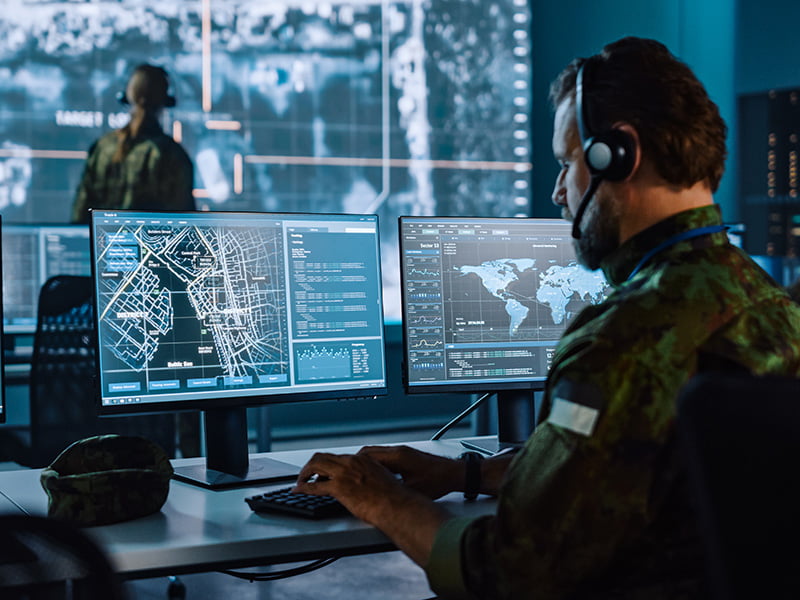Australia has joined a global push for the responsible use of artificial intelligence in military operations, signing a declaration with 30 other countries that commits it to applying AI guardrails in weapons systems.
Australia joined the Declaration on Responsible Military Use of AI and Autonomy on the sidelines of this week’s AI Safety Summit in the United Kingdom, attended by Defence minister Richard Marles and Industry minister Ed Husic.
The US-led declaration is separate to the Bletchley Declaration signed by Australia, the European Union and 27 other nations, including the United States and China, on the opening day of the summit.

Launched in February, the non-binding declaration establishes a “set of norms for responsible development, deployment and use of military AI capabilities” that align with international law, particularly humanitarian law.
“An increasing number of States are developing military AI capabilities, which may include using AI to enable autonomous functions and systems. Military use of AI can and should be ethical, responsible, and enhance international security,” the declaration reads.
An updated version of the declaration, published this week, contains ten non-binding principles, including that senior officials oversee the deployment of military AI capabilities with “high-consequence applications”, such as weapon systems.
“Military use of AI capabilities needs to be accountable, including through such use during military operations within a responsible human chain of command and control,” the latest version of the declaration reads.
Personal that use military AI capabilities should also be sufficiently trained to “understand the capabilities and limitations of those systems in order to make appropriate context-informed judgements”.
The principles also call for states to ensure that “military AI capabilities are developed with methodologies, data sources, design procedures, and documentation”, undergo rigorous testing and assurance prior to deployment, and minimise unintended bias.
As at November 1, the declaration was endorsed by 32 nations, including three of the five permanent members of the UN Security Council (the US, UK and France), Germany and Japan. China and Israel are notably absent on the US declaration, despite signing the Bletchley Declaration.
Addressing the media on the second day of the AI Safety Summit, Mr Marles, who attended the conference on behalf of Prime Minister Anthony Albanese, described the statement as an important development.
“It’s critical important that AI is not deployed in a defence context which undermines the obligations that we have under a range of international treaties,” he said, referring to the rules and norms that exist for conventional warfare.
He added that having a “human-centre focus is fundamental so that the use of AI, as useful and important as it can be, does not erode the obligations that [Australia is party to in the defence space]”.
Discussing AI more generally, Mr Marles said it was important to build safety into AI “at an early stage”, given its complexity – the polar opposite of what some Australian researchers have called for.
On Wednesday, the United Nations approved a new draft resolution on lethal autonomous weapons systems, which the US has reportedly pursued in recent weeks to establish international norms for AI in weapons systems.
Do you know more? Contact James Riley via Email.

